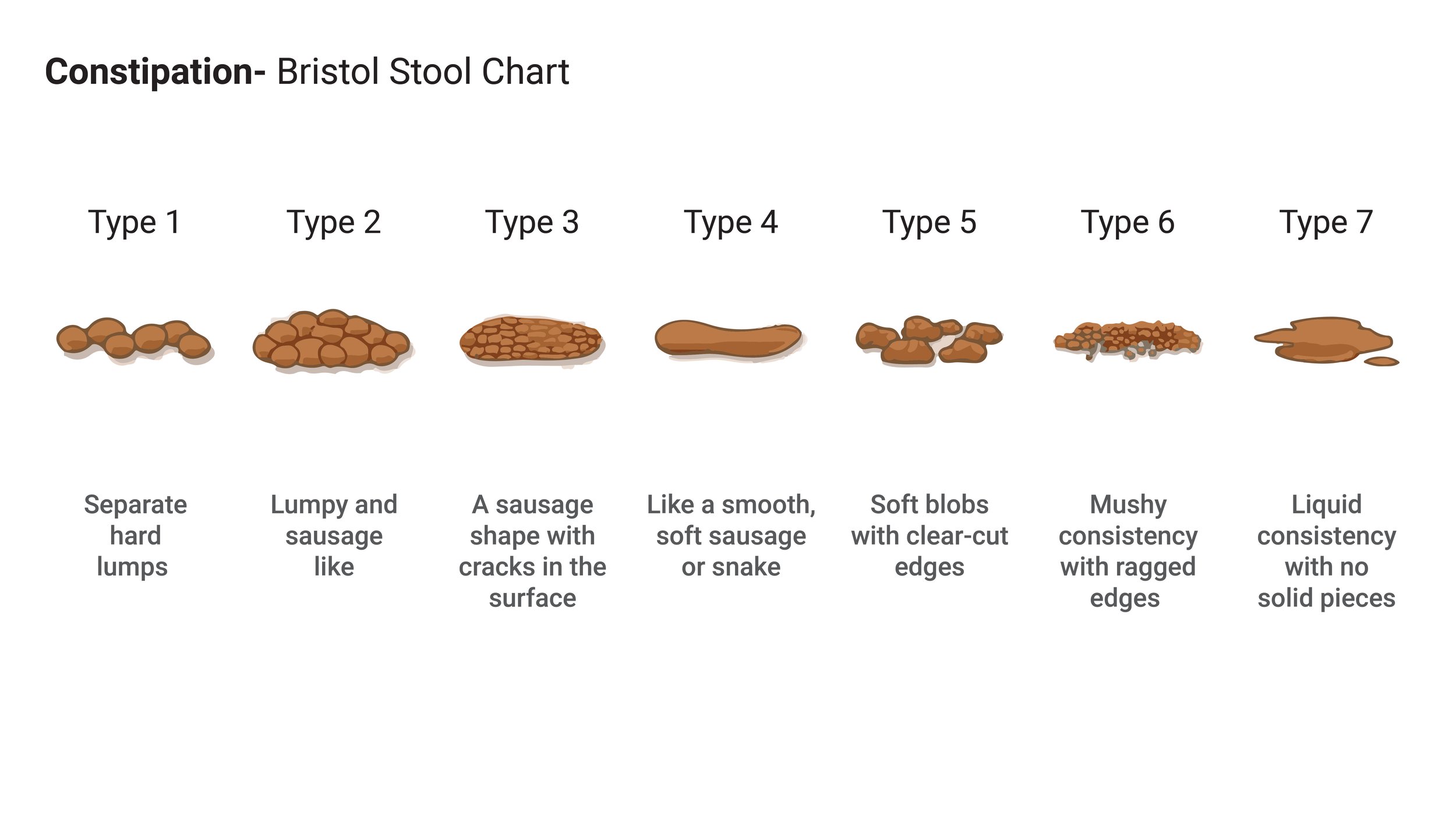What is a Healthy Bowel Movement?
May 16, 2024
At some point in history, talking about bathroom habits became taboo. Which is funny if you think about it, because we all go all the time! (The exception to this is if you’re holidaying with friends, then it becomes a high topic of conversation…)
Because we don't talk about our bathroom habits, how do we know what's normal or not?
I see so many clients who have put up with constipation for YEARS, because they simply didn't know it wasn't as it should be.
Fun fact - I didn’t realise there was anything wrong with my bowels movements - until I started studying health! It had become my normal.
So let's dive into what constitutes a healthy bowel movement, and how you can improve yours for increased gut health, and overall health.
UNDERSTANDING HEALTHY BOWEL MOVEMENTS
A healthy bowel movement should be effortless and comfortable, and let’s be honest - satisfying. The top five questions I ask clients are as follows:
FREQUENCY
Are you having a daily bowel movements?
While the jury is out on how regularly you should be having a bowel movement, I firmly believe it should be at least once daily. Any less than this, and we are holding onto waste for far longer than we should be.
EASE
Are they easy to pass?
If you’re having to strain, its a sign that things are not quite right.
COMPLETE
Does it feel complete after passing a bowel movement?
If you regularly get a sense that you still need to pass more, this gives us a clue that things are not moving as they should be.
BRISTOL STOOL CHART
What does your bowel movement typically look like when compared to the Bristol Stool Chart below?
We are aiming for type 4 most of the time, although 3 and 5 can also be a healthy stool.

BOWEL TRANSIT TIME
Is your bowel transit time between 12-24 hours?
Find out how to complete a bowel transit test HERE
SOME OTHER CONSIDERATIONS INCLUDE
APPEARANCE
A healthy stool should be well-formed, smooth, and easy to pass. It should be brown in colour, indicating the presence of bile. Any deviation from this, such as unusual colours or textures, might signal a problem. For example, sticky stools can be a sign that you’re not digestive fats properly, or eating too many fats.
SMELL
While bowel movements are not known for their pleasant aroma, they shouldn't have an overpowering or foul smell. Excessive odour might suggest issues with fat malabsorption or the presence of certain foods that your body is struggling to process.
BLOOD
Yep, we have to go here! It’s too important not to mention. If you notice blood in your stool, please see your GP immediately. Be mindful that beetroot will appear as red stool! Also if you have an anal fissure or haemorrhoids from straining, and wipe you will notice bright red. This is different to the dark red blood you will see in your stool if there is bleeding within the digestive tract. If you are unsure, consult your GP.
TIPS FOR A SATISFYING BOWEL MOVEMENT
If you find that your bowel movements are irregular or uncomfortable, here are some tips to promote better gut health:
HYDRATE
Drinking an adequate amount of water is essential for maintaining healthy digestion. Aim for 30ml per kg of body mass per day, to keep your stools soft and easy to pass.
EAT FIBRE-RICH FOODS
Fibre adds bulk to your stool and helps regulate bowel movements. Include plenty of fruits, vegetables, whole grains, legumes, and nuts in your diet to ensure an adequate fibre intake.
EXERCISE REGULARLY
Physical activity stimulates bowel movements by speeding up the passage of food through the digestive tract. Aim for at least 30 minutes of moderate exercise most days of the week.
MANAGE STRESS
Chronic stress can disrupt digestion and lead to irregular bowel movements. For some people this will be constipation, for others it will be diarrhoea. Practice relaxation techniques such as deep breathing, meditation, or yoga to help manage stress levels.
SEEK PROFESSIONAL ADVICE
If you're experiencing persistent digestive issues or changes in bowel habits, it's important to consult with a healthcare professional. They can help identify any underlying conditions and provide personalised recommendations for improving your gut health.
While I always seek to empower people to action the basic foundations for health via these blogs, please do not feel like you have to untangle your health problems on your own! It’s the equivalent of me trying to service my car…
Remember, your bowel movements are such a valuable indicator of your digestive health, so I encourage you to pay attention to them.
Small changes can lead to significant improvements in your digestive health over time. Listen to your body, go when the urge arises, and don't hesitate to seek help if you're experiencing digestive discomfort.
Brooke x
If you are ready to resolve your gut issues, please get in touch by booking in a Discovery Call HERE.

